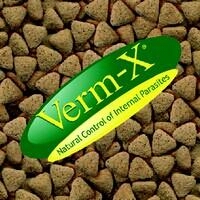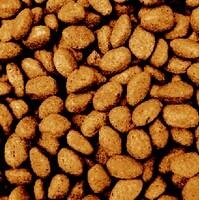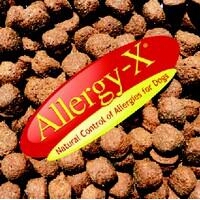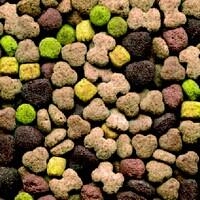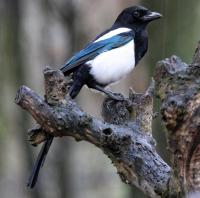- Home
- FAQs
- Customer Video Gallery
- Customer Photo Gallery
- Bird Facts
- Bird Food Blog
- Bird Information
- Feeding Advice
- Small Animal Information
- A to Z of Guinea Pigs
- A to Z of Hamsters
- A to Z of Rabbits
- Basic Care for Guinea Pigs
- Basic Care for Hamsters
- Basic Care for Rabbits
- Basic care for Chinchillas
- Basic care for Ferrets
- Basic care for Gerbils
- Basic care for Mice
- Basic care for Rats
- Buying a Healthy Small Animal
- Does your Reptile need a Licence
- Equipment for Ferrets
- Equipment for Hamsters
- Equipment for Mice
- Equipment for your Chinchilla
- Equipment for your Gerbil
- Equipment for your Guinea Pig
- Equipment for your Rabbit
- Keeping a House Rabbit
- Dog Information
- Cat Information
- Customer Information
- Fat Balls
- Suet Pellets
- Straights
- Seed Mixes
- Suet Treats
- Mealworms
- Bird Feeders
- My Account
Dogs Canine Health Care
Your dog needs regular care to keep him in tip-top shape – follow our guide and nip any signs of trouble in the bud.
The first job a prospective dog owner should do is enlist the services of a good vet, as he will be your first point of contact whenever you are worried about your pet's health. Small animal practices deal mainly with dogs, cats, rabbits, hamsters etc, whereas large animal practices specialise in farm animals and horses. It makes sense to go to a vet who specialises in dogs, or at least small animals, and word-of-mouth recommendation is an excellent way of finding competent, caring vet. Your vet will be happy to provide a canine healthcare programme, but it’s up to you to implement conscientious daily care in order to maintain your pet’s continued good health.
Twootz provides a great range of complete dry dog food and puppy food specially formulated to provide all the nutrients necessary to maintain a nutritionally balanced diet that helps promote good health and vitality. Manufactured in the UK from quality ingredients this range has something for every dog.
General care:
Every day:
Every week:
Every month:
Every two months:
Every three months:
Every six months:
Every year:
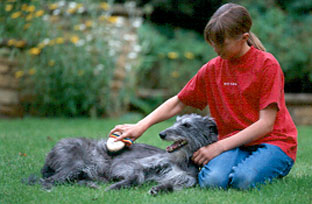
The first job a prospective dog owner should do is enlist the services of a good vet, as he will be your first point of contact whenever you are worried about your pet's health. Small animal practices deal mainly with dogs, cats, rabbits, hamsters etc, whereas large animal practices specialise in farm animals and horses. It makes sense to go to a vet who specialises in dogs, or at least small animals, and word-of-mouth recommendation is an excellent way of finding competent, caring vet. Your vet will be happy to provide a canine healthcare programme, but it’s up to you to implement conscientious daily care in order to maintain your pet’s continued good health.
Twootz provides a great range of complete dry dog food and puppy food specially formulated to provide all the nutrients necessary to maintain a nutritionally balanced diet that helps promote good health and vitality. Manufactured in the UK from quality ingredients this range has something for every dog.
General care:
- the habit of observing your dog. Take the time to watch how he stands up and lies down, how he walks, tackles stairs and obstacles, runs and plays, eats and chews, drinks, urinates and defecates. Any change from normal actions or behaviour, or any apparent discomfort or problem, should be cause for concern
- There should be no blood in faeces or urine, nor regular diarrhoea or vomiting. Check the colour and consistency of faeces and examine them for undigested food, bone, foreign bodies (e.g. string, coins, pebbles), a strong, unpleasant smell or an unusual appearance, such as slime
- Stiffness and weakness are abnormal and, even in older dogs when these conditions may occur due to ageing, can often be helped. Dogs should not excessively scratch, lick themselves, whine, pant or cry, nor yelp if touched normally
- If your dog seems uncomfortable, distressed, restless or unhappy, try to discover the reason why – possibly with a visit to the vet, as it’s better to be safe than sorry! Adopting an observant attitude and translating that attitude into action equals quality care for your dog
Every day:
- Many experts now agree that one feed a day is not enough, and that two feeds (each comprising half the daily ration) keep the dog more comfortable and are better for his digestion. Food bowls should be washed after each meal and clean, fresh water must always be available in a large, clean container. The water bowl should never run dry – if it does, you are probably not giving your dog enough to drink
- The opportunity to 'piddle and poo' should be offered at least four times a day (first thing in the morning, midday, late afternoon/early evening and before bedtime are reasonably spaced periods). Either take your dog outside or allow him to go out himself into a secure area. Always clean up faeces afterwards, disposing of them responsibly
- Long-coated dogs should be brushed daily, or their coats soon become dirty and matted. This may cause discomfort as well as encourage parasite infestation and skin problems
- Your dog’s bedding should be shaken out daily and rearranged. Check it for blood or excreta stains – if you see any and are concerned as to the cause, consult your vet
- Check your dog’s eyes for excessive discharge or pus, or if they have a sore, shrunken or swollen appearance. Examine the cornea for cloudiness or marks
- Be and play with your dog as often as possible. Quality time together is essential for his happiness and, therefore, his ability to thrive and be healthy. Don't, however, force old dogs or those with a physical ailment (e.g. arthritis) to go for longer walks than they can comfortably manage. Frequent, gentle, slow walks are what they need, along with tender, loving care
Every week:
- Wash your pet’s bedding
- Gently examine your pet’s ears for discharge, an unusual or unpleasant smell, dirt, discolouration, swelling or wounds
- If your dog yelps when his ears are touched, repeatedly scratches them or shakes his head, you need to investigate the cause and seek veterinary advice
- Check your dog’s coat and skin for discolouration, parasites, wounds and lumps. Check under the tail and between the buttocks for stuck-on faecal matter, dirt and signs of worms (white specks similar to grains of rice)
- Check paw pads for splits and between the toes for cysts, matted hair and lumps of dirt. Examine claw nail beds for soreness. If your dog’s claws become too long they will need to be clipped – ask your veterinary nurse to show you how
Every month:
- Long-haired breeds may benefit from a monthly bath, depending on the weather. Ensure you thoroughly rinse shampoo from your dog’s coat using clean, tepid water. Avoid getting water in his eyes
- Check teeth for discolouration, tartar accumulation, sore-looking gums, bad teeth and bad breath
- Look for uneven skin wear, such as callouses on elbows and hocks, and coat abnormalities, e.g. thin or bald patches
- If you live in an area where sheep are kept, treat your dog from May to October with a preparation to ward off ticks (such as Frontline Spot On Dog). Frontline is only available from your vet
- Puppies need to be wormed monthly; your vet will advise on the most suitable product and quantity to use
Every two months:
- Applying Frontline Spot On Dog every two months will keep your dog free from flea infestation all year round
- Some breeds (e.g. poodles and Old English Sheepdogs) require professional clipping and/or grooming to keep their coats and skin in good condition
Every three months:
- Administer worming tablets as recommended by your vet
Every six months:
- A session with a canine beautician is beneficial for dogs. As well giving your pet a thorough bath and brush-up, a good dog groomer will give him a mini-MOT – checking him over for signs of ill health and the state of his anal glands, claws, ears, paw pads and teeth
- She will advise you if any veterinary attention needs to be sought for something you may have overlooked
Every year:
- Vaccination boosters and a thorough health check should be done annually




